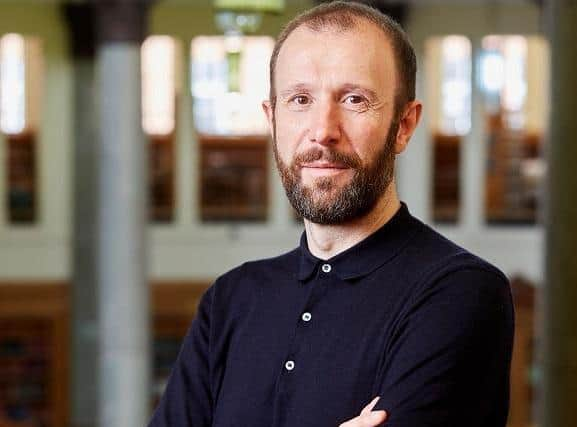Yorkshire and the North can draw on textiles past to help reframe the fashion industry, expert says
Dr Mark Sumner, a lecturer at Leeds University’s School of Design, spent years focussing on sustainability for Marks and Spencer, and now carries out research into the textile, clothing and fashion industry.
And he said that while he rejected the idea that the sector could be completely brought back to the UK, he said there was an opportunity for a resetting.
Advertisement
Hide AdAdvertisement
Hide Ad“There’s something peculiar about Yorkshire in that it has a self identity that it brings to the fore,”


Dr Sumner said: “In the North we’ve got Boohoo and Missguided as the new powerhouses but in places like Huddersfield you’ve still fabric production, in Leeds we’ve got Hainsworth, they do some extraordinary things in terms of textiles.
“But laid on top of that there’s Brexit going on and people talk about reshoring and that this means that we can bring the textiles industry back to the UK, well frankly that is not going to happen for a lot of reasons. We don’t have the raw materials in the UK to actually make the garment.”
But pointing to the Industrial Revolution - which he said was “built on textiles” - he said: “What we did was we brought all of these raw materials from places like India and China and other, and we value added, that’s what we were all about - adding value, and then selling those goods on.
Advertisement
Hide AdAdvertisement
Hide Ad“It’s a completely different world now obviously and Brexit is one thing but we’ve also got the pandemic, and what we’re seeing with the research project we are doing at the moment is that all sorts of issues have been thrown up.
“The bottom line for the UK industry is, I would argue, that it’s been saturated, which is why it’s been so price competitive.
“Now what we’re seeing is those organisations that were close to closing down and have been for many years have gone because of the joint impact of Brexit and Covid, and we potentially have got to a position where we can have some control over or input into what the industry could look like in the future.”
Labour MP Catherine West, chair of the All-Party Parliamentary Group for Ethics and Sustainability in Fashion, said: “It does point to the levelling up agenda because it is perfect for regional development.”
Advertisement
Hide AdAdvertisement
Hide AdMs West said she was keen that companies, especially outside of London, took advantage of the super-deduction scheme announced by the Chancellor last month.
“What the Chancellor has said in the most recent Budget was we’re going to give you big tax incentives, so rather than paying 20 to 30 per cent in tax on this new sewing machine, you don’t have to pay any tax on that.
“Those sorts of things I think will really help businesses, so let’s say you’ve got a big company starting up in Yorkshire, which was to start supplying to Marks and Spencer or something, they will buy a whole lot of machinery and they’ll be able to pay no tax on that purchase, so there are things there, and we can make this work.”
And she said there was a need for “homegrown” to take precedence.
Advertisement
Hide AdAdvertisement
Hide Ad“Think about the industry being worth £34bn in the UK, even if we got 10 per cent of that and made it home grown, that is still a massive uplift for producers, manufacturers, sales reps, still creating jobs.
“The question is how do you do it on a scale which works but I think looking at it regionally is a wonderful way of looking at it, you're really building on something, some expertise which is there.”
Dr Sumner added: “The end of life stories are really interesting, particularly for West Yorkshire where you’ve got a very long legacy and heritage of textile recycling going on. You’ve got Oxfam in Batley, you’ve got organisations like Edward Clay [in Ossett], you’ve got John Cottons [in Mirfield], that really interesting end of the pipe, they’re dealing with a lot of waste, and doing a really good job in terms of what they’re doing.”
One of the buzzwords in fashion currently in circularity, where items are designed to be used and reused for as long as possible.
Advertisement
Hide AdAdvertisement
Hide Ad“I’m not really that excited about circularity as a cause or as a label” Dr Sumner said.
“But what’s interesting about West Yorkshire is we can talk about circulatory in the sense that we’ve got production, we’ve got fabric, we’ve got recycling, we’ve got Leeds as a really vibrant area for fashion going on as well, so you’ve got this mini cosmos that really does reflect a lot of the big challenges that are out there for the industry.”
And he said fighting those challenges would mean “a business model that works for delivering customer need, but also delivers for the business, and at the same time decouples the impact in terms of the social and environmental stuff.”